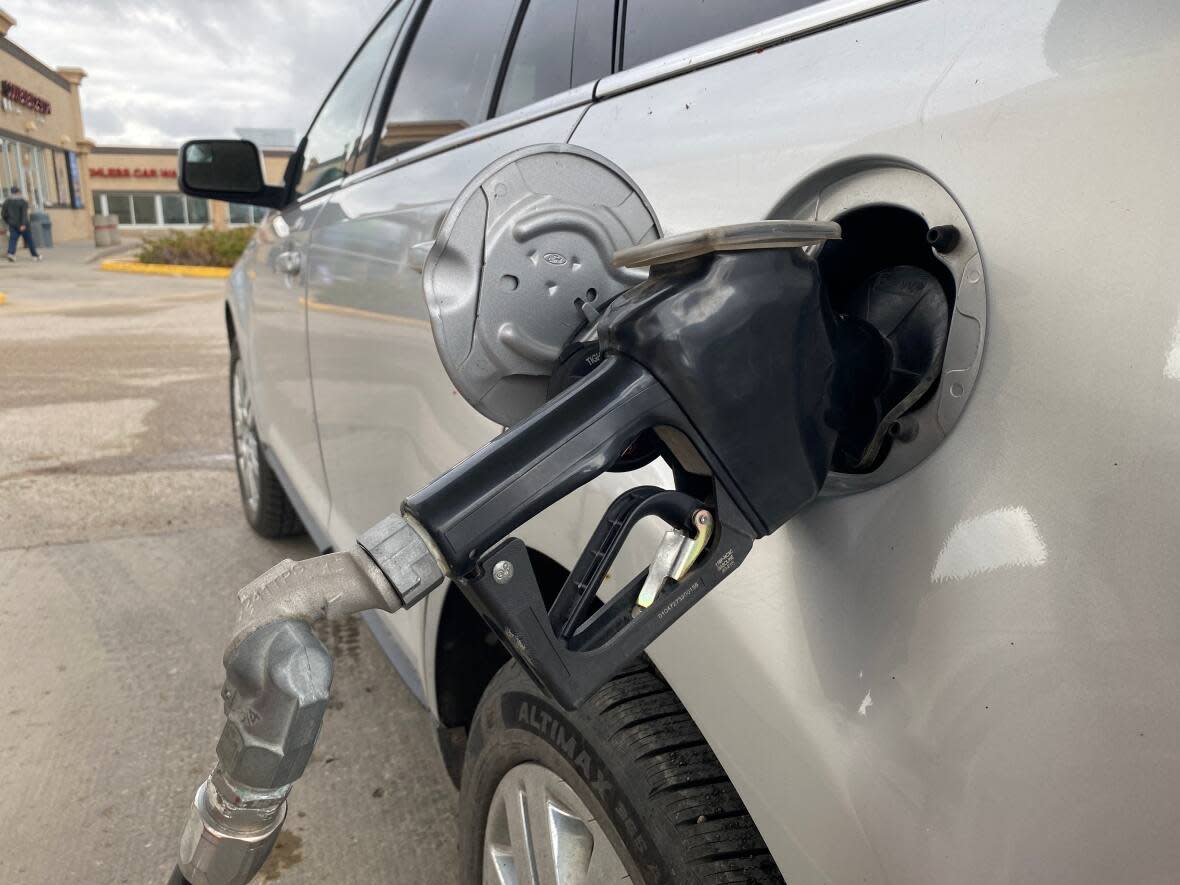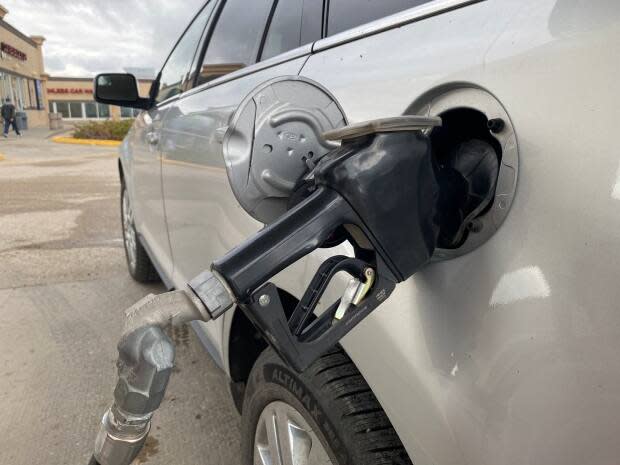How does the PUB calculate gas prices in N.L.? Here's what we know


The price of gas in Newfoundland and Labrador — and across the country — has risen dramatically over the past few months, and there doesn't seem to be an end in sight.
CBC News has heard from commuters, seniors and others, already struggling with the cost of living, who say the rising prices of gas and heat are hitting them hard, and even pushing some to the brink.
As gas prices hit new record highs, the provincial government has been under increasing pressure — from the public, the opposition and consumer groups — to intervene, but Liberal politicians have repeatedly said the government has little control over the price of gas.
In Newfoundland and Labrador, fuel prices are regulated by the Public Utilities Board, which describes itself as an independent, quasi-judicial body. The PUB has a provincial government mandate to regulate the price of fuel, as well as some other products and services, like electrical utilities and automobile insurance.
Normally, the PUB, which has been regulating fuel prices since 2001, sets its changes every Thursday morning, right after midnight.
This year, though, price adjustments have become unpredictable. The PUB has made surprise price adjustments almost every week since mid-February in addition to its regular adjustments. In its news releases announcing extraordinary changes, the PUB blames "extraordinary commodity market developments."
Although the PUB doesn't reveal everything factoring into each price change, there is a method — and much of that information can be found on its website.
The benchmark
To calculate motor fuel prices each week, the PUB pays for data from Platts U.S. Marketscan, an overview of United States fuel markets which sets a daily "benchmark" price.
The benchmark price for gas is influenced by numerous factors, including the price of crude oil and global events like the COVID-19 pandemic and Russia's invasion of Ukraine in February.
Dan McTeague, president of Canadians for Affordable Energy, says while the price of gas has gone up globally, it is even higher in Canada.
"Structurally, there are a number of reasons why prices are much higher in Canada and here in Newfoundland," McTeague told The St. John's Morning Show.

The PUB converts the daily benchmark prices from U.S. currency to Canadian currency, and from gallons to litres. The weekly average of those daily prices then sets the base price for a given week. The exchange rate is one of the forces behind high gas prices across Canada, McTeague said.
"They're higher in Canada is because of a weakness in our dollar, a significant one. When it takes 30 cents to buy a U.S. dollar, it means that's adding 32, 33 cents to the price of gasoline," he said.
As of Friday, the Canadian dollar was at $0.77 US.
Marking up
Once the PUB has calculated that base price for motor fuel — $1.2477 per litre on the Avalon Peninsula as of Friday — it adds what it calls a "total allowed markup."
That markup was $0.2593 per litre of self-service gas on the Avalon Peninsula on Friday. In a statement provided to CBC News, PUB director of corporate services Cheryl Blundon said that markup consists of a wholesale markup of $0.1565 and a retail markup of $0.1028.
According to Blundon, the wholesale markup reflects the operating costs for supplying gasoline to gas stations, and includes marine freight, terminal fees and tractor trailer freight. The wholesale markup also includes the five-cent tax imposed by the PUB at the request of North Atlantic Refining to offset importation costs after the closure of the Come By Chance Refinery.
Outside the Avalon, the PUB adds what it calls "zone differentials" — additional fees related to storage and distribution. Those differentials explain why gas costs in most parts of the province outside the Avalon Peninsula.

The retail markup includes operating costs for retailers — like rent, maintenance and administrative fees — as well as for profits for those businesses.
Added together, the benchmark price and the total allowed markup created a base price of $1.507.
Then comes the taxes
After that, it's time to add taxes — which is where the government does have some say in what people pay.
In the House of Assembly, Progressive Conservative Opposition members have hammered the provincial government for its gas tax.
Finance Minister Siobhan Coady hasn't budged on current taxation, and said eliminating the carbon tax on gas could mean the federal government would enforce the tax on other products.
As of Friday, consumers on the Avalon were paying 63.49 cents in taxes on a litre of self-serve gas. The taxes per litre include 27.94 cents in HST, 14.5 cents in provincial gas taxes, 10 cents in federal excise taxes and 11.05 cents in federally mandated carbon tax.
In the end, the PUB arrived at a pump price of $2.142.
More transparency coming, says government
Last week, Digital Government and Service N.L. Minister Sarah Stoodley announced details of new amendments to the Petroleum Products Act, meant to give more transparency to how the PUB calculates fuel prices.
"Right now, government doesn't have the information on, for example, what's involved in the total allowed markup. That's kind of a mystery for us at the moment," Stoodley said.
The new amendments will require the PUB to show exactly how it calculates gas prices, including the pricing components involved in the wholesale and retails markups. Stoodley will be able to direct the PUB to review how it calculates prices and hold public hearings.
McTeague said he agrees that more transparency would be a good thing.
"I hope that what we get from this is a little bit better understanding of how gas prices arrive globally, regionally and, you know, right across the province here," McTeague said.
"I think if we do that, we might get a lot further to a better understanding of why prices fluctuate."


